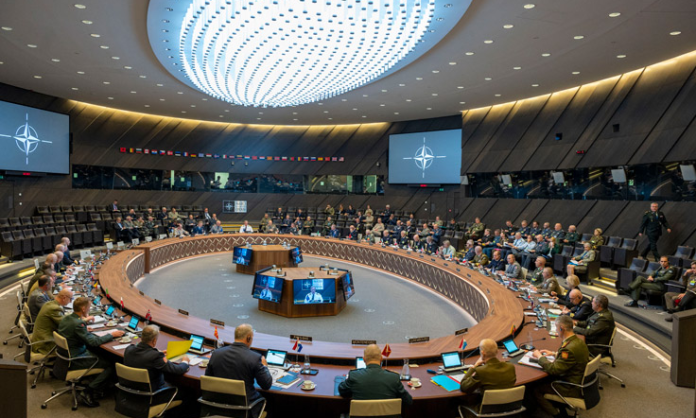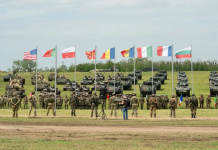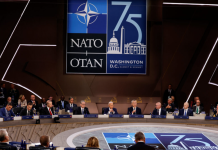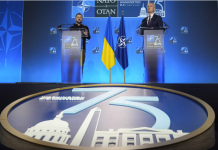The leaders of the countries forming NATO will converge on Vilnius, Lithuania, for a summit taking place July 11 and 12. For international security, this year’s event requires its participants to take definitive action. Their decisions will have ramifications for years to come.
NATO countries are at a stalemate in finding a replacement for Jens Stoltenberg, the current NATO secretary general, who was due to step down from his position at the helm this fall. A stalwart professional, this iconic leader has served as head of the most enduring alliance since 2014.
Since assuming his leadership role, he has been extended as the secretary three times due to exigent circumstances and will most likely be extended yet again. His unflappable nature, laser focus, and ability to keep the alliance together have served NATO quite well over the years and shown the relevance of the trans-Atlantic organization. As the member nations look to see who will follow in Stoltenberg’s shoes, they should set the stage at the NATO summit to begin a discussion to identify a viable replacement, to ensure that the likely successor is someone who can build upon NATO’s success in a positive way (such as increasing military funding, showing a willingness to forward-deploy troops in defense of NATO countries, and maintaining a unified approach when dealing with transnational security issues).
The war in Ukraine continues and European security is still at the forefront, and this will be discussed as well. The head of the Russian state-funded paramilitary group Wagner, Yevgeny Prigozhin, and his march toward Moscow in late June showed just how unstable things continue to be in Russia. Accordingly, NATO will have to remain steadfast and courageous in its support to Volodymyr Zelensky and the people of Ukraine.
Decisions will be made regarding materiel support, including lethal and nonlethal aid, funding, intelligence support, and training of the men and women of Zelensky’s country who will be called on to operate the equipment provided to Ukraine. It is imperative that NATO is seen as the leader of a unified front committed to keeping Russian power in check, to serve as a deterrent to Russian President Vladimir Putin and the Russian military machine; this will show unequivocally that expansion of the conflict to contiguous NATO member countries is not and will not be acceptable. The resolve must profess that an Article 5 event — that an attack on one is seen as an attack on all — is what will ensue if Russia embarks on forays into expanding the conflict. NATO leaders must remain committed to the forward-deployed enhanced Forward Presence along the alliance’s eastern flank.
More, in NATO’s case, is better. Sweden should be allowed to join NATO despite Turkey’s reluctance; member nations must press Turkey to acquiesce and allow for this prospective member to officially join the alliance. Sweden has participated in NATO exercises in the past and has a lot to offer in terms of quality forces and equipment. Likewise, by contiguously joining with other NATO countries in Scandinavia (Norway and Denmark), its accession to the NATO ranks will make it clear to Russia that NATO is a force to be reckoned with in this part of Europe, thereby strengthening the alliance’s position on the continent.
Nuclear issues are also rising in importance. Since Russia pulled out of the New START treaty, it has been escalating the state of play regarding nuclear weapons. NATO is a conduit to demonstrate to Putin that other options are available in the name of security beyond centered on nuclear weapons. Alliance members, and by extension NATO’s leaders, should not capitulate to Russia’s veiled threats and should send a message that the alliance will not be cajoled into standing down.
The NATO Summit is the most important meeting taking place this summer when it comes to international security. NATO should begin serious discussion on a likely and viable leader to replace Stoltenberg next year (if he is extended for another year). Security in Ukraine and, by extension, Eastern Europe remains the forefront concerns. The alliance could benefit from expanding membership to include Sweden and addressing the impact of Russia pulling out of the New START treaty as we move toward mid-July.





